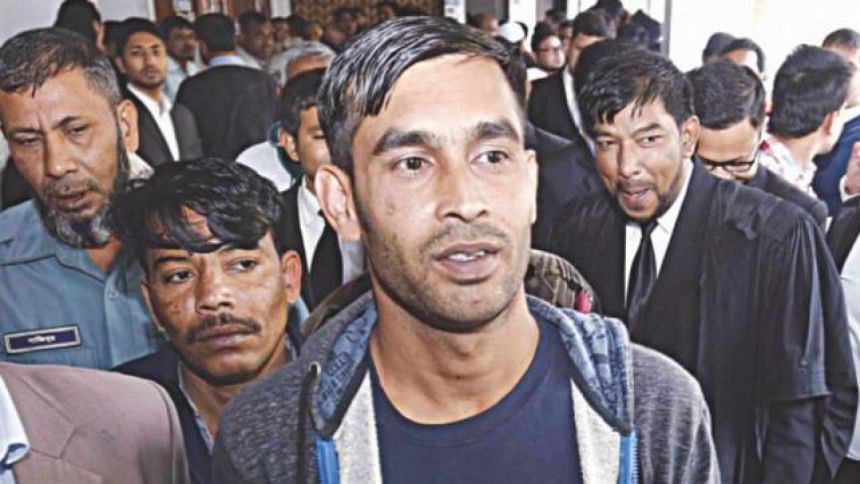Plight of Jaha Alam: HC wants particulars of ACC investigators

The High Court has wanted to know names and particulars of 11 officials of the Anti-Corruption Commission who were investigating 26 corruption cases in which jute mill worker Jaha Alam was wrongly implicated and suffered in jail for three years.
During hearing a suomoto (voluntary) rule, the court asked the ACC to submit a report to this effect before it by August 28.
The HC bench of Justice FRM Nazmul Ahasan and Justice KM Kamrul Kader today passed the order following a compliance report submitted by the ACC before it.
In the report, the ACC said that departmental cases have been lodged against its 11 officials who probed the corruption cases against Jaha Alam.
The court also asked the ACC to specifically mention the reasons in the report why the departmental cases have been filed against 11 officials.
ACC’s lawyer Advocate Khurshid Alam Khan told The Daily Star that the ACC had issued show-cause notice to 11 investigation officers, but their replies were not satisfactory.
Therefore, the ACC has lodged departmental cases against them, he said, adding that they can run their jobs during the proceedings of the departmental cases.
Earlier on July 11 this year, the ACC placed a probe report before the HC where it mentioned that ACC’s investigation officials were responsible for erroneously incriminating Jaha Alam in corruption cases, which resulted in him languishing in jail for three years.
“It seems that the mistake of identifying Jaha Alam as Abu Salek happened because of the investigation officials,” said the report prepared by ACC Director (legal wing) Abul Hasnat Md Abdul Wadud.
Describing the extent of the officials’ carelessness, the report said the ACC officials investigated the cases, but none of them visited Jaha Alam’s house.
Some bank officials and introducers of Salek’s bank accounts misled the investigation officials, it also mentioned.
“But it is the duty of the investigation officials to unearth the truth and present it before the court. There is no scope for shifting this duty to bank officials or someone else,” the report further said.
On July 16, the HC bench directed the ACC, Sonali Bank and BRAC Bank to submit separate reports before it by August 21 on the steps taken against the officials responsible for the suffering of Jaha Alam and to keep surveillance on them so that they cannot leave the country.
The banks have prepared their reports which will be submitted to the HC on August 28, ACC lawyer Khurshid Alam said.
In 2012, the ACC filed 33 cases against a number of individuals over misappropriation of Tk 18.5 crore from Sonali Bank. Abu Salek, a businessman, was made accused in 26 of those cases.
But the ACC identified Jaha Alam as Salek. He was arrested in 2016 and sent to jail.
When the issue of wrongly implicating Jaha Alam surfaced in the media, the HC intervened and ordered his release. He was released from Kashimpur Central Jail-2 in Gazipur on February 4 this year.

 For all latest news, follow The Daily Star's Google News channel.
For all latest news, follow The Daily Star's Google News channel. 






Comments